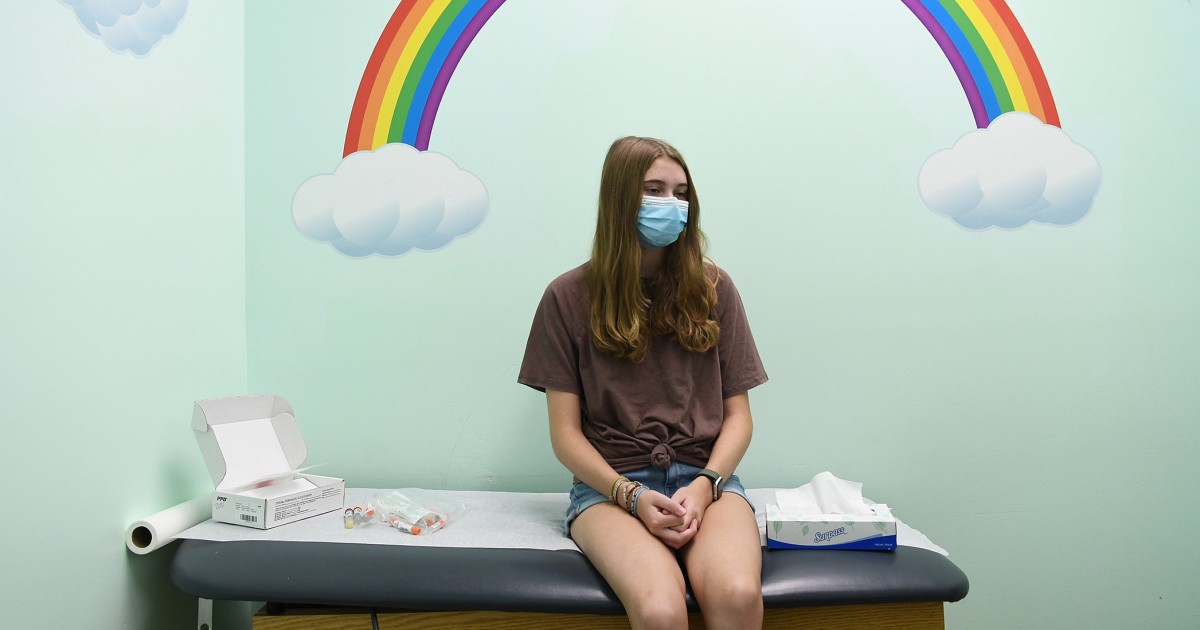
Millions of U.S. children have had long Covid, estimates suggest, but less is known about their symptoms than those of adults.
A large, national study offers new insights into what the post-viral illness looks like in kids and teens, suggesting that they experience a markedly different set of symptoms from adults. Although Covid itself has historically been milder in kids, the results indicate that many have debilitating, long-term side effects that make it difficult to attend school, participate in extracurriculars or spend time with family or friends.
“This is a public health crisis for children,” said Dr. Rachel Gross, the study’s lead author and an associate professor of pediatrics at the New York University Grossman School of Medicine.
“Experiences of chronic illness affect them as they grow, and it impacts the health of the adults that they become,” she said.
The study is part of the RECOVER initiative, one of the world’s largest investigations into long Covid, which is funded by the National Institutes of Health.
The researchers behind the new study, published Wednesday in the journal JAMA, asked the caregivers of more than 3,800 children about their kids’ symptoms at least 90 days after Covid. They also surveyed the caregivers of around 1,500 children without a history of Covid and compared the responses.
The results showed that among children ages 6 to 11, headache, trouble with memory or focus, trouble sleeping and stomach pain were most commonly associated with long Covid.
Adolescents’ common symptoms were more similar to those in adults, which previous RECOVER findings identified as post-exertional malaise (worsening symptoms after exercise), fatigue, brain fog, dizziness, gastrointestinal issues and heart palpitations. The new research showed that those ages 12 to 17 were more likely than young kids to experience daytime sleepiness or low energy, and body, muscle or joint pain.
Headaches and trouble with memory or focus were still common in this age group. A change or loss in the sense of taste or smell — another characteristic symptom of long Covid in adults — was also prominent in adolescents but not in young kids.
“We have to look for these differences,” Gross said. “Otherwise, we may be missing children who are experiencing long Covid.”
Long Covid overall seems to be less common in children than in adults, but a February review in the journal Pediatrics estimated that 10% to 20% of children who got Covid developed post-viral symptoms within six months.
The spectrum of symptoms in children and teens is wide, according to the new study. In total, 14 symptoms were more prevalent in children with a history of Covid than those without.
The study has a few limitations, however: Since caregivers reported their children’s symptoms, it’s possible they missed some or overestimated others. The caregivers also reported their children’s Covid infections — they weren’t confirmed by tests. The researchers did, however, test to make sure the uninfected group didn’t have Covid antibodies.
The findings align with what doctors are observing in long Covid clinics, said Dr. Amy Edwards, director of the pediatric Covid recovery clinic at UH Rainbow Babies and Children’s Hospital, who wasn’t involved in the new research.
Edwards said some kids in her clinic “have dropped out of school, dropped out of all their extracurricular activities and are barely functioning.” For others, she added, “it’s not so bad that they can’t go to school, but their grades are slipping. They may have used to be A, B students, and now they’re really struggling to pass.”
The new research validates these experiences, she said — especially for some of her pediatric patients who faced skepticism from adults when they reported their symptoms.
“School nurses were mocking them for faking it,” Edwards said. “These are teenagers and kids, and people are telling them to their face that there’s nothing wrong with them.”
Knowing that a symptom may be related to long Covid could help kids find appropriate treatments, said Christine Koterba, a pediatric neuropsychologist at Nationwide Children’s Hospital, who also wasn’t part of the study.
There’s no broadly effective treatment for long Covid, but many clinical trials are underway. In the meantime, Koterba said, doctors have turned to interventions used for other long-lasting illnesses like post-concussion syndrome, which is similarly characterized by headaches and memory or concentration problems.
“There’s a lot that we can draw on from other, similar populations to help kids get back to functioning,” she said.
Edwards said that for many kids with long Covid, she recommends sleep and a healthy diet consisting of anti-inflammatory foods, as well as managing other conditions like allergies that can further aggravate the immune system.
Anecdotally at least, young kids tend to recover more quickly from long Covid than teens or adults, she said.
“What we see in our school-age children is virtually 100% recovery within one to two years. That’s pretty universal — and for a lot of them, even shorter than that,” Edwards said, adding, “The pediatric immune system is structured toward dealing with novel viruses, because all the viruses are novel for a kid.”
Most teens recover eventually as well, she said, though it may take them longer.
Gross said there isn’t enough research to back up those assumptions yet, but the RECOVER researchers plan to follow up with the children in their study to find out whether their symptoms improve over time.






